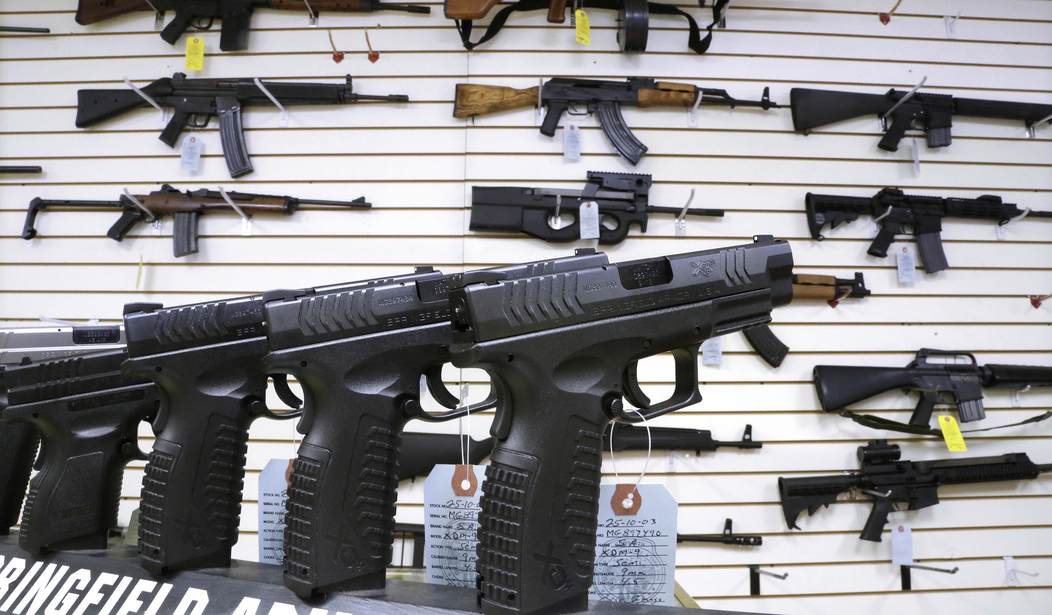Without comment or a published vote, the Supreme Court let stand an Illinois law banning the sale of semi-automatic weapons, rejecting an appeal by the National Association for Gun Rights and an Illinois firearms dealer.
The rejection by the high court marks the end of round one in the effort to kill the ban, which goes into effect on January 1, 2024. Indeed, the court often waits for a controversial case to emerge from the lower courts before ruling on the primary issue.
The ban includes penalties for a person who "carries or possesses… manufactures, sells, delivers, imports, or purchases any assault weapon or .50 caliber rifle." The law also includes penalties for a person who "sells, manufactures, delivers, imports, possesses, or purchases any assault weapon attachment or .50 caliber cartridge."
The new law cleared a big hurdle when the state Supreme Court voted 4-3 in August to allow the law to take effect. In November, a U.S. Court of Appeals refused to block the law as well.
"A right delayed is a right denied, and every day these gun bans are enforced is a travesty to freedom. We will be back to the Supreme Court as soon as our legal team finishes drafting our cert petition, and they will have to decide if they really meant what they said in Heller and Bruen," said Dudley Brown, president of the National Association for Gun Rights.
So-called "assault weapons" bans are sprouting up all over the country, and it didn't help that SCOTUS refused to intervene in the Illinois case.
The appeal to SCOTUS was considered a long shot from the get-go, given the Court’s reluctance to involve itself in the early goings of any post-Bruen litigation to date and the lack of a circuit court split on the issue. Since there are only a handful of states that have imposed bans on “assault weapons”, however that term is defined, there are only a handful of legal challenges across the country. U.S. District Judge Roger Benitez has declared California’s ban unconstitutional, but that ruling is on hold while the case is appealed to the Ninth Circuit. A lawsuit against Washington State’s “assault weapons” ban is in the early stages, and a judge has yet to rule on a request for an injunction even though oral arguments were held several months ago. The Third Circuit has an “assault weapons” ban lawsuit taking on Delaware’s gun ban, but oral arguments have not yet been scheduled, while litigation challenging Connecticut’s ban is pending in the Second Circuit.
As Cam Edwards at Bearing Arms points out, the danger of the Supreme Court refusing to rule on the Illinois ban will only encourage other states that see the Illinois law as a template to impose their own restrictions on firearms.
Related: Liberties Under Assault: 2nd Amendment Edition
There are other cases working their way through the lower courts that would serve as a suitable vehicle to address the issues raised in Illinois.
The best opportunity for the Supreme Court to weigh in may be a Fourth Circuit case known as Bianchi v. Brown, which has been pending for over a year now. The first anniversary of oral arguments before a three-judge panel on the Fourth Circuit took place last week, but we still have no idea when the decision will come down. If the panel concludes that Maryland’s ban does violate the Second Amendment, the state’s attorney general is most likely going to take his appeal to an en banc panel of the Fourth Circuit instead of filing his appeal with the Supreme Court, but if the judges uphold the ban the plaintiffs will have the opportunity to ask the justices for immediate relief. The Court has already granted cert in Bianchi before vacating the lower court decision upholding the ban and remanding the case back to the Fourth Circuit for a re-do in light of their opinion in Bruen, so it may be that they’re holding off on any decisions regarding prohibitions on semi-automatic firearms until that case comes back to them.
The fight is far from over, and until the Supreme Court gets to weigh in on the issue of semiautomatic gun bans, there's no chance that the Illinois ban will be blocked.










Join the conversation as a VIP Member